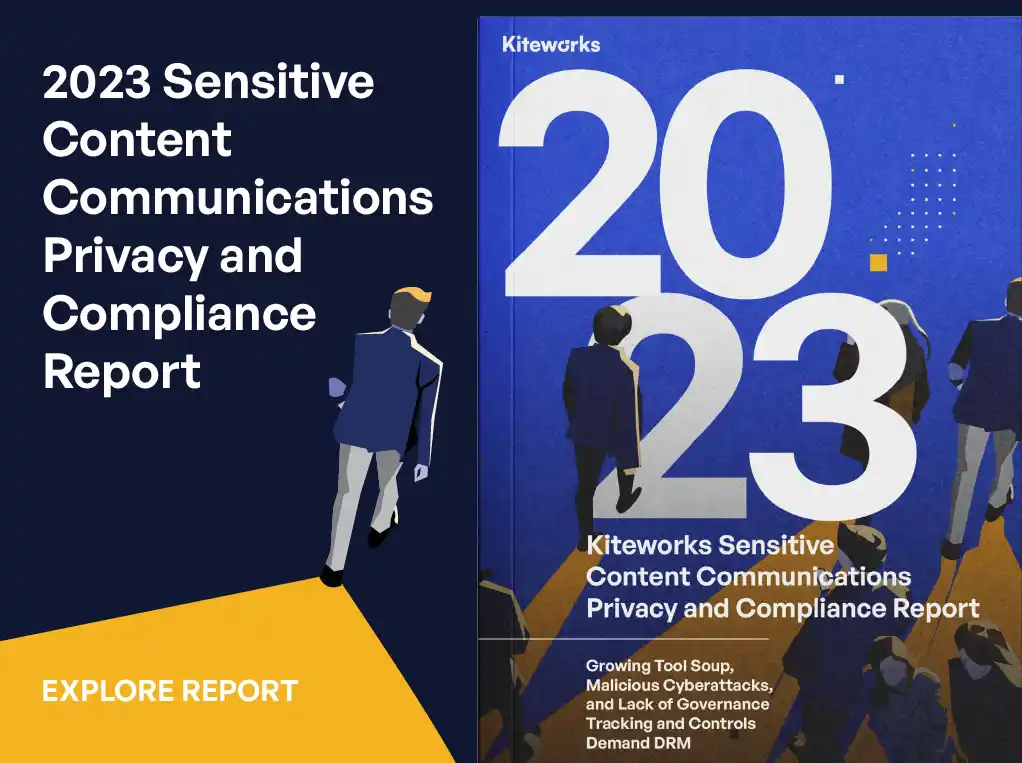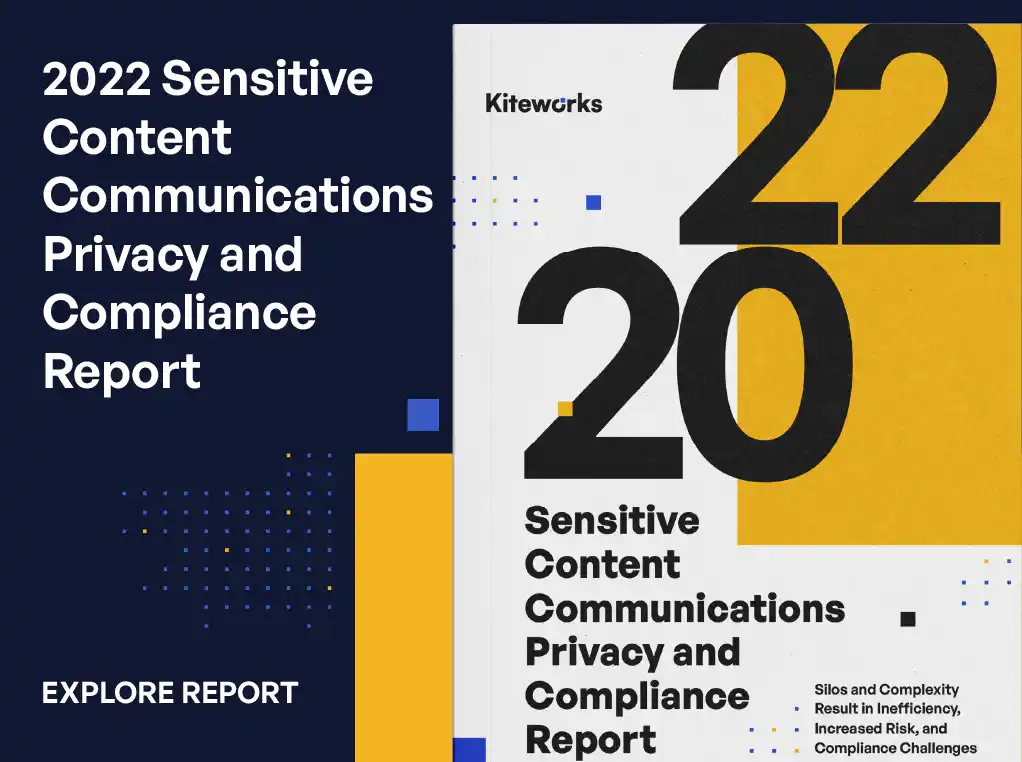Benchmark Your Sensitive Content Communication Risk
Discover how organizations are protecting sensitive content communications while ensuring data privacy and compliance with security standards
Viewers of this Kitecast episode will gain valuable insights into the latest trends in cybersecurity, privacy, and compliance from the Kiteworks 2024 Sensitive Content Communications Report. They will learn about the growing scale of cyber incidents, the persistent challenges of human error, and the impact of geopolitical tensions on cyber threats. The discussion also highlights the disparities in cybersecurity maturity across different industries and the critical role of regulatory compliance.
Top Key Takeaways
57%
of organizations cannot track and control sensitive content exchanged externally
33%
of organizations experienced 7+ sensitive content communication breaches last year
45%
of organizations spent over $3 million on data breach litigation costs last year
62%
of organizations spent 2,000+ staff hours annually compiling compliance audit reports
Watch this video to get highlights from Kiteworks 2024 Sensitive Content Communications Privacy and Compliance Report. Key data points in the video include insights into the evolving landscape of data security and compliance facing organizations amidst a growing third-party risks and proliferation of communication tools.

